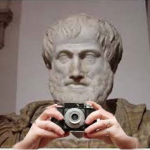 One important understanding of the creative process in its long tradition is that it is philosophically neutral, in other words, the process itself has nothing to do with what you believe, or assume, or your deeply held convictions. The proof of this is history. People from various and contradictory belief systems have mastered the creative process.
One important understanding of the creative process in its long tradition is that it is philosophically neutral, in other words, the process itself has nothing to do with what you believe, or assume, or your deeply held convictions. The proof of this is history. People from various and contradictory belief systems have mastered the creative process.
Those who think it is important what you believe often tried to tie their beliefs to how your life will turn out. If you adopt the “right” beliefs, you will be all right. But if you don’t, look out! You will have hell to pay.
Human beings want to believe in things. That is our nature. And belief is a personal matter. It is no one else’s business if you believe in God, or metaphysics, or have your doubts, or are a confirmed atheist.
Yet, it is common these days to ask politicians what religious beliefs they hold. And they are expected to hold ones that are acceptable to the general public. And God forbid if they don’t! In fact, for some politicians, they do not respect the intellectual discipline of science, but they will happily go on about their religious concepts about life’s true mysteries speaking as if they had a mystical understanding of what can’t be understood.
Our society has fallen into the bad habit of tying belief with things that do not call for belief. Integrity, for example. The fact is one can have integrity independent of any belief system. If we think about it, in fact, integrity must be completely separate from any set of beliefs for it to be true integrity.
Integrity is about values, not beliefs. Values are about the choices you make when they are competing with each other. Truth Vs. Kindness is one pair of factors that are often mutually exclusive. Love Vs. Duty is another, and one that makes for great film plots as in Casablanca. Quality Vs. Quantity might be another, one that we see occur in business. What matters most to you? If it were truth for truth’s sake, belief must be put aside, not considered at all. As in the old TV cop show Dragnet, “Only the facts, Ma’am.”
But, you might think that at least you need to believe in yourself. This is one of those silly ideas that has become a social norm and a truism that is simply not true.
It began with the positive thinking folks, and then infiltrated the rest of society. Then came the self-esteem movement, and the rest is the unfortunate history of the popular notion that you need to believe in yourself and have good, positive thoughts, and love yourself, and have high “intention” to get anywhere in life. Not only is this total nonsense, it is a detrimental notion.
One study that Dr. Wayne Andersen and I found while researching our book Identity comes from Columbia University. They took 400 eighth graders and divided them into two groups. They were all given the same easy puzzle to solve. Every child in one of the two test groups was told this one line, “You must be smart at this.” The kids in the other group did not get any feedback. When the time came for the children to choose the next puzzle, a majority of the children who were not complimented chose a harder puzzle to try. But, a majority of the children who were complimented, even though it was only that one sentence, chose an easier puzzle to solve. The study showed how those students who were focused on “how smart they were” were de-motivated to challenge themselves. But the ones who were left to whatever they thought, were ready to engage in more complex challenges. This is only one of many such studies we have seen, now contradicting the claims that it is important to think well of yourself.
It is not that each person who creates has no personal belief or even philosophic viewpoints. It is that it doesn’t matter at all.
So, while those in the “belief business” try to sell you their various beliefs as if it were the ticket to success and happiness, know that in the “Creating business” it doesn’t matter what you believe. Creating is as philosophically neutral as is swimming, driving, walking, cooking, painting, commerce, and science.
